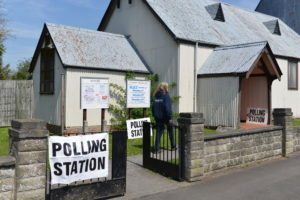
If you’ve ever found yourself wondering how decisions are made in your local community, or if you have ideas about how things could be done better, then it may be time for you to get involved in local politics.
This post, drawing insights from Instant Input’s comprehensive guide, will outline a few practical steps on how to contribute and boost community engagement.
Understand Your Local Political Structure
Before you can effectively contribute to local politics, it’s crucial to understand how your local government is structured. Who are the key decision-makers? Which institutions or bodies have the most influence? Understanding the power dynamics can give you clarity on where to focus your efforts.
Research on Current Issues
Being well-informed about your community’s current affairs is a crucial starting point. You need to understand the issues at hand, the people it affects, and the potential solutions that are being proposed. Look for reliable local news sources and follow the social media accounts of local government bodies and politicians to stay informed.
Attend Local Government Meetings
Local government meetings are where decisions that affect your community are made. Attending these meetings can give you a first-hand look at the processes, debates, and decisions that shape your community. Moreover, these meetings often include periods where members of the public can speak or ask questions.
Join or Form a Community Group
Whether it’s a neighborhood association, a parent-teacher organization, or a special interest group, community groups can be effective vehicles for political action. They can help amplify your voice, provide a platform to discuss and advocate for issues, and provide support in navigating the local political scene.
Volunteer for a Campaign or Candidate
If there is a particular candidate or issue you feel strongly about, volunteering for their campaign is a powerful way to contribute. Campaigns often need volunteers to help with tasks ranging from door-knocking to organizing events, and your participation can make a significant difference.
Run for Office
If you’re ambitious and committed, consider running for a local office. While it requires substantial time and effort, there’s no more direct way to shape local policy. And even if you’re not successful, you can use the campaign as a platform to draw attention to issues you care about.
Engage with Your Community
Remember, politics is not just about formal institutions and procedures; it’s about people. Regularly engage with your community, listen to their concerns, and foster open dialogues. This will not only inform your own perspectives but also create a more engaged, vibrant community.
Local politics may not have the glamor of the national stage, but it’s where decisions that affect our day-to-day lives are made. By contributing to local politics, you’re helping shape the community you want to live in.
Advocate for Local Policies
Once you’re involved, use your voice to advocate for policies that can benefit your community. Whether you’re speaking at a local government meeting, writing an op-ed for the local newspaper, or starting a petition, there are numerous ways you can push for change. Remember, it’s crucial to back your arguments with credible research and data to strengthen your position.
Use Social Media to Mobilize Support
Social media platforms are an excellent tool for rallying support, sharing information, and engaging with the community. Post regularly about local issues, engage in discussions, and encourage others to get involved. However, always remember to be respectful and considerate in your online interactions.
Partner with Local Businesses and Nonprofits
Local businesses and nonprofits often have a vested interest in the community’s welfare and can be valuable allies. These partnerships can help you gain support, resources, and visibility for your cause. Plus, it’s a great way to foster a sense of communal unity and purpose.
Get Youth Involved
The youth are not just the leaders of tomorrow – they can be the leaders of today. Encourage young people in your community to get involved in local politics. They can bring fresh perspectives, innovative ideas, and invigorated energy to the table. Plus, it’s a fantastic way for them to learn about governance and civic responsibility.
Be Persistent
Change doesn’t happen overnight, and there will be challenges along the way. It’s important to stay persistent and maintain your momentum, even when progress seems slow. Celebrate small victories, learn from setbacks, and remember that every step you take is a step towards a better community.
Conclusion
Contributing to local politics and boosting community engagement is not just about having your voice heard, it’s about actively participating in the shaping and decision-making processes of your community. It’s about fostering understanding, advocating for shared interests, and working towards the common good. Your involvement, no matter how small it may seem, can make a significant difference.
The beauty of local politics is that every citizen can be a catalyst for change, offering unique insights and lending their skills to improve their community. By getting involved, you’ll be helping to ensure that your community reflects the needs, desires, and aspirations of its residents. In this way, local politics is not a distant concept but a living, breathing, and evolving entity that feeds on the active participation of its community members.
As we’ve discussed in this article, there are numerous ways to contribute. Start small, find what works best for you, and remember that every bit of effort contributes to the bigger picture. Community engagement is not a sprint, but a marathon; your persistent efforts will slowly but surely lead to the kind of community you envision. Let’s take that first step today and contribute to the change we wish to see in our local politics.
Remember, “The best way to predict the future is to create it.” – Abraham Lincoln. So let’s start creating a future we’d be proud to leave for the generations to come.
Read more:
How to Contribute to Local Politics and Boost Community Engagement





